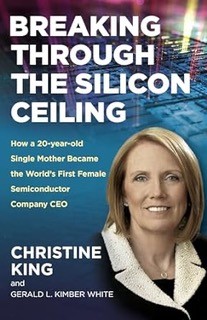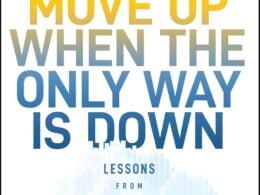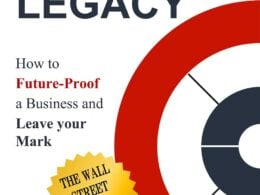The following is an excerpt from “Breaking Through the Silicon Ceiling” by Christine King, who rose from a tenacious 20-year-old single mother facing limited prospects in 1970 to become a pioneering female CEO in the semiconductor industry.
Lesson #5—Where There Is an Opening, Go for It!
I have never been very inspired by the “popular” in business or life. I tend to become bored quickly by the market, business, and investment opportunities that everyone else is focused on. My thinking is that if everyone else is already doing it, whatever value may have been there at one time is quickly eroding as increasing numbers of people slice and dice up the opportunity and fight over the scraps. I’m more excited about and motivated by finding the undiscovered gem or opportunity that others haven’t spotted or acted upon yet. The moments of greatest acceleration in my career and life have come in the pursuit and capture of the “white spaces” of undiscovered and uncertain opportunity.
When I realized there was an opportunity to dramatically improve the efficiency of the chip-testing process through automation, and that no one else had ever thought of doing that before, I jumped in with both feet! I didn’t hesitate for a moment to begin designing and creating a prototype, even running to my local Radio Shack to buy the cassette recorder and tapes I would need! Once I had my prototype, I poured myself into convincing the engineers of the value of my new process, and it took off like wildfire. White spaces, successfully acted upon, are always exciting. When I saw and acted upon that opening, my reputation grew rapidly at IBM. I was seen as someone who “thought outside the box” and was willing to strike out on my own in pursuit of an idea that I thought had potential. It differentiated me from all the other engineers who had stayed in the “colored-in spaces” that were well-known and understood—and unimaginative and limited.
Making Waves: A Woman’s Rise to the Top Using Smarts, Heart and Courage
When I sat nervously in that microprocessor strategy meeting, listening to managers who were several layers above me in the organization laying out a strategy that I knew wouldn’t work, or wouldn’t work as well as they hoped, I could have kept quiet and gone with the flow. Certainly, that was what was expected of me. But I couldn’t ignore that opportunity to once again step into the white space and explore a better path forward. And once again, it dramatically accelerated my career. I became the site’s “microprocessor expert,” and was asked to develop and teach a microprocessor class to the other engineers. Of course, once it became popular, my interest waned, and I was ready to move on to the next white space.
The white spaces are always where the greatest opportunity lies, if you have the courage to seek them out and pursue them. I say courage because if it didn’t take courage, more people would do it. People don’t naturally look for the white spaces because we are creatures of habit and everything and everyone around us encourages us to stick with what works, to follow the accepted and prescribed paths to success. Organizations, like organisms, evolve over time to follow “what works,” accreting a solid foundation of “the tried and true.” While that foundation provides security, it also constrains the organization’s and its people’s vision of the future. The wise person, though, recognizes that the future will undoubtedly be different from the past. They are aware of the accepted paths but not limited to them. Like a pioneer, you must blaze your own way. Sometimes, it will keep you in those well-worn paths, but sometimes, you will spot something off the trail, maybe on the horizon, and you need to be brave enough to explore it if you feel there is value in it.
As you begin seeking out the white spaces and acting on the opportunities, you will find that success is self-reinforcing. That first step into a white space in your career will be scary. It is completely unknown, and all the external forces are arrayed against you. But once you achieve success with that first white space, you gain the internal fortitude to know you can do it again. Each subsequent success compounds your courage and, if you successfully execute on those opportunities, your value to your organization and those around you will accelerate and be unbounded.
6 Women Who Blazed the Trail for Female Entrepreneurs
You might think that white spaces are limited, that they are a diminishing resource and that with every successfully executed opportunity, the remaining pool of opportunity is less. In my experience, however, there is always more white space to be discovered (but that doesn’t make every white space valuable). The backdrop against which we are operating is not static; it is dynamic and constantly evolving. White space and opportunity can be abundant in times and places of chaos—a frequent occurrence in today’s world. White spaces that were not there yesterday can appear today, and the white spaces that are here today may not be there tomorrow.
For white-space hunters like me, there is always opportunity, and the only limits are our own imagination, creativity, and ambition. While I have been speaking about white spaces within my technical world, the principle holds in every discipline and area of life. The English teacher who notices a gap in his school’s curriculum where dyslexic students are not being well served, and studies to become an Orton-Gillingham or Wilson specialist, is stepping into the white space. The brewery that adds a coffee shop in the morning hours to more productively use their space is stepping into the white space. Again, not every opportunity is worthwhile, but when you see something and have the conviction that it is worthwhile, have the courage to go for it. As Nike said, “Just do it!”
This excerpt from “Breaking Through the Silicon Ceiling” is reprinted by permission. The rights of by Christine King as author have been asserted in accordance with the Copyright, Designs and Patents Act 1988.







